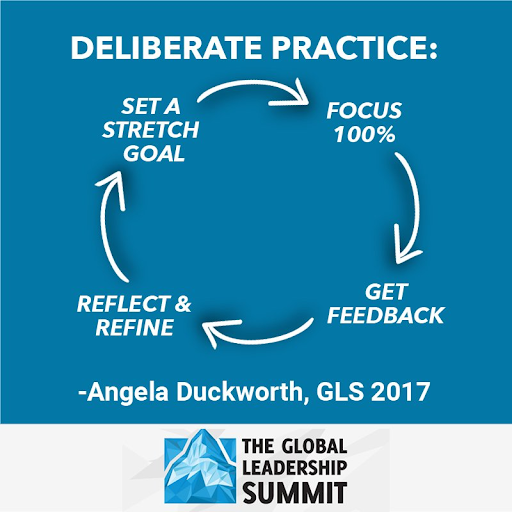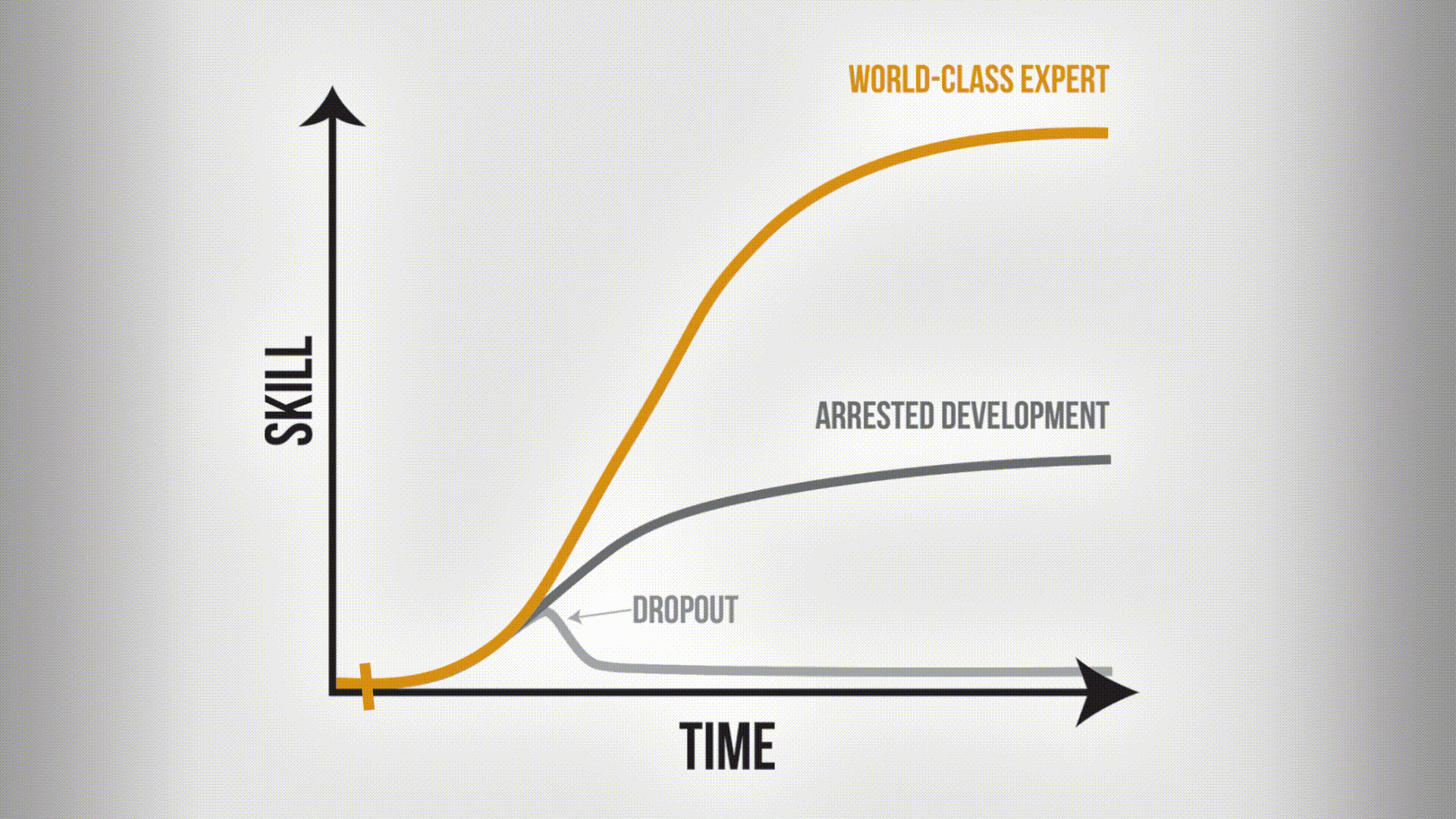In one of our prior videos, I shared the concept of continuous improvement and how it takes 10,000 hours of deliberate practice to transform someone from an amateur (with no expertise) to a world-class expert.
This sounds great, but it also sounds hard, arduous, and time-consuming. That’s right—it does, and it is. It takes passion and perseverance over a long period to achieve world-class expertise. It takes what Angela Duckworth, professor of psychology at the University of Pennsylvania, calls grit.
Duckworth defines grit as “sustained passion and perseverance for very long-term goals.” In other words, grit is having stamina. Grit is sticking with your future, day in, and day out—not just for the week or month, but for years, and working hard to make that future a reality.
In her book “Grit” (which is fabulous by the way—put it on your reading list), Duckworth explained how she studied and tried to predict the following:
- Which cadets at the West Point Military Academy would stay in military training and which would drop out
- Which children at the National Spelling Bee would advance farthest in the competition
- Which rookie teachers working in tough neighborhoods would still be teaching by the end of the school year, and of those, who would be the most effective at improving learning outcomes for their students
- Which high school juniors in the Chicago public school system were going to graduate
Also, she partnered with private companies and asked which of their salespeople would keep their jobs and earn the most money. In all those very different contexts, one characteristic emerged as a significant predictor of success. It wasn’t family income, standardized achievement test scores, or even how safe kids felt when they were at school. It wasn’t IQ, charming good looks, physical health, or social intelligence either. It was grit.
“It takes passion and perseverance over a long period to achieve world-class expertise.”
So is grit something that we are born with, is it a byproduct of a tougher upbringing, or is it something that can be learned? Grit is something that can certainly be learned, and the process of deliberate practice is not only the tool we use to master our craft but also the environment that can foster the growth of our grit muscle.

Practice can be hard, but every time we choose to engage in and complete a full cycle of deliberate practice and then re-engage in the repetition of it—whether it’s a jump shot, a lap, or dialogue for a sales call—we are training our minds to overcome obstacles and persevere toward a goal. Afterward, we’ll naturally see our grit muscle grow. If we can string a bunch of quality deliberate practice reps together, over time we will see ourselves become grittier and find ourselves on the path to excellence.

At the Jelmberg Team, we provide an environment for this growth through weekly coaching, training, and accountability. If you have any questions or are curious about how we incorporate these concepts into our business, reach out to one of the agents on our team for a private one-on-one meeting. We’d love to help you.





